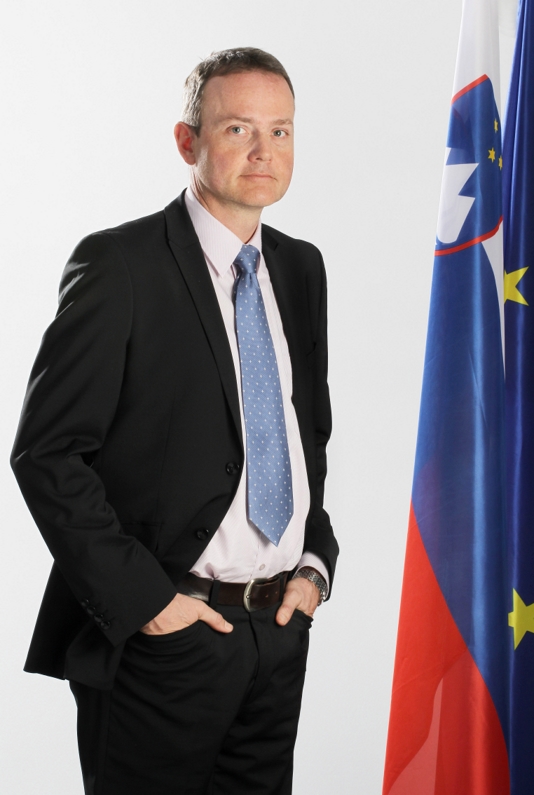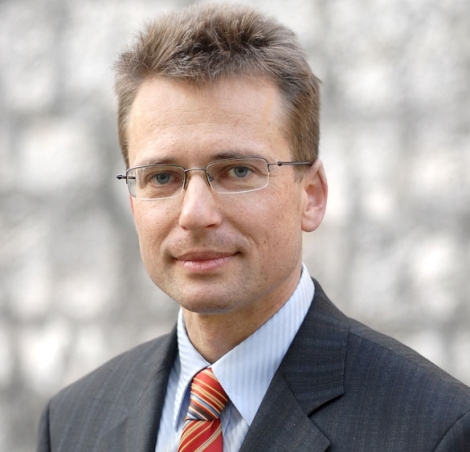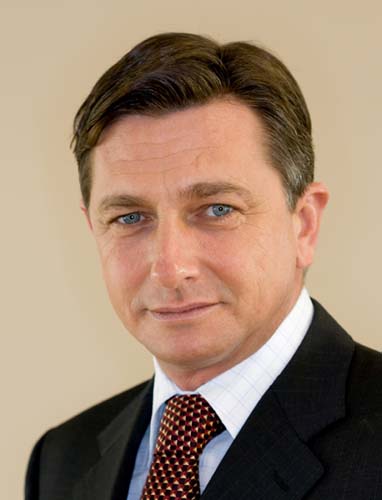Trilateral’s New Puppet Prime Minister of Slovenia?
2012/01/19 Leave a comment
After Mario Monti has been installed the head of a “technochratic” government of Italy and Papademos the head of a “technochratic” government of Greece, Slovenia’s president Danilo Türk has nominated Marko Voljč as his candidate for Prime Minister of Slovenia. Like Monti and Papademos, Voljč is a member of the Trilateral Commission and has not been elected in any democratic elections.
Voljč is Türk’s second choice candidate for Prime Minister, after his first candidate, the former mayor of Ljubljana, Zoran Janković, was rejected by Slovenia’s parliament. Türk’s initial plan was to nominate Janković a second time, but the latter withdrew his candidacy amidst allegations that he was the subject of a criminal investigation by the state prosecutor general, the police and Slovenia’s anti-corruption agency at the instigation of Slovenia’s tax autorities. The latter allegedly suspect Janković of tax evasion, defrauding of creditors, abuse of public office and money laundering. In an unprecedented diplomatic move, the U.S. ambassador to Slovenia, Joseph Mussomelli, had publicly expressed reservations of the U.S. administration regarding the suitability of Janković as prime minister and allegedly warned leaders of other political parties against joining a coalition with him prior to the parliament’s vote. Rumour has it that the Americans “know all about Janković’s business dealings in Cyprus” and his alleged connections with cocaine smuggling mafia. Not long before Janković’s candidacy, Austrian authorities had arrested Alenka and Mihael Karner, two Slovene citizens, at the request of the American DEA for their role in the sale of illegal substances. The Karners had been involved in many property deals in Ljubljana involving the obtaining of planning permission while Janković was mayor and allegedly had many business dealings with Janković. Janković, often referred to by bloggers by his nickname “Mafijanković”, is known to the public as the father of Jure Janković. The latter was caught on tape by journalists ordering the hit on an investigative journalist Jaka Elikan, who was at the time investigating the business dealings of Electa, a Cypriot company owned by Jure Janković and his brother Damijan Janković. Electa’s primary “business” allegedly consisted of buying land without planning permission in Ljubljana and obtaining planning permission while Zoran Janković was mayor. Electa bought, for example, a plot of land at Jesenkovo for 277,000 EUR and signed heads of agreement with a Bruno Filipič to re-sell it for 32 million EUR after the land was granted planning permission. The agreement, however, was not completed because Filipič was arrested for trafficking the ingredients to manufacture heroin.
Janković’s rise to prominence in Slovenia’s national politics was precipitated by the fall of the previous government of Slovenia in November 2011. This was caused in a large part by the numerous affairs of the former Interior Minister Katarina Kresal. Kresal was alleged to be a user of cocaine (Miss Kresal had been publicly challenged to submit a sample of her hair for testing and refused to do so), was linked to the suspicious death of society doctor Saša Baričević, the forgery of nearly 500 signatures by her mother Frederika Kresal, the corrupt leasing of the Interior Ministry’s premises from Miss Kresal’s personal friend and numerous other affairs. Kresal was eventually brought down by the report of the anti-corruption agency, just as the head of the former (and currently still acting) Prime Minister’s cabinet was before her. During her tenure, Miss Kresal frequently dined with Mr Janković, such dinners having on occasion been followed by the dropping of police investigations of Mr Janković.
Türk, Janković, Kresal and Voljč are members of Slovenia’s left wing political elite, the three men among them having already been influential during Slovenia’s pre-1991 communist days.
In parliament, Janez Janša, leader of the right-wing opposition, enjoys more support.




